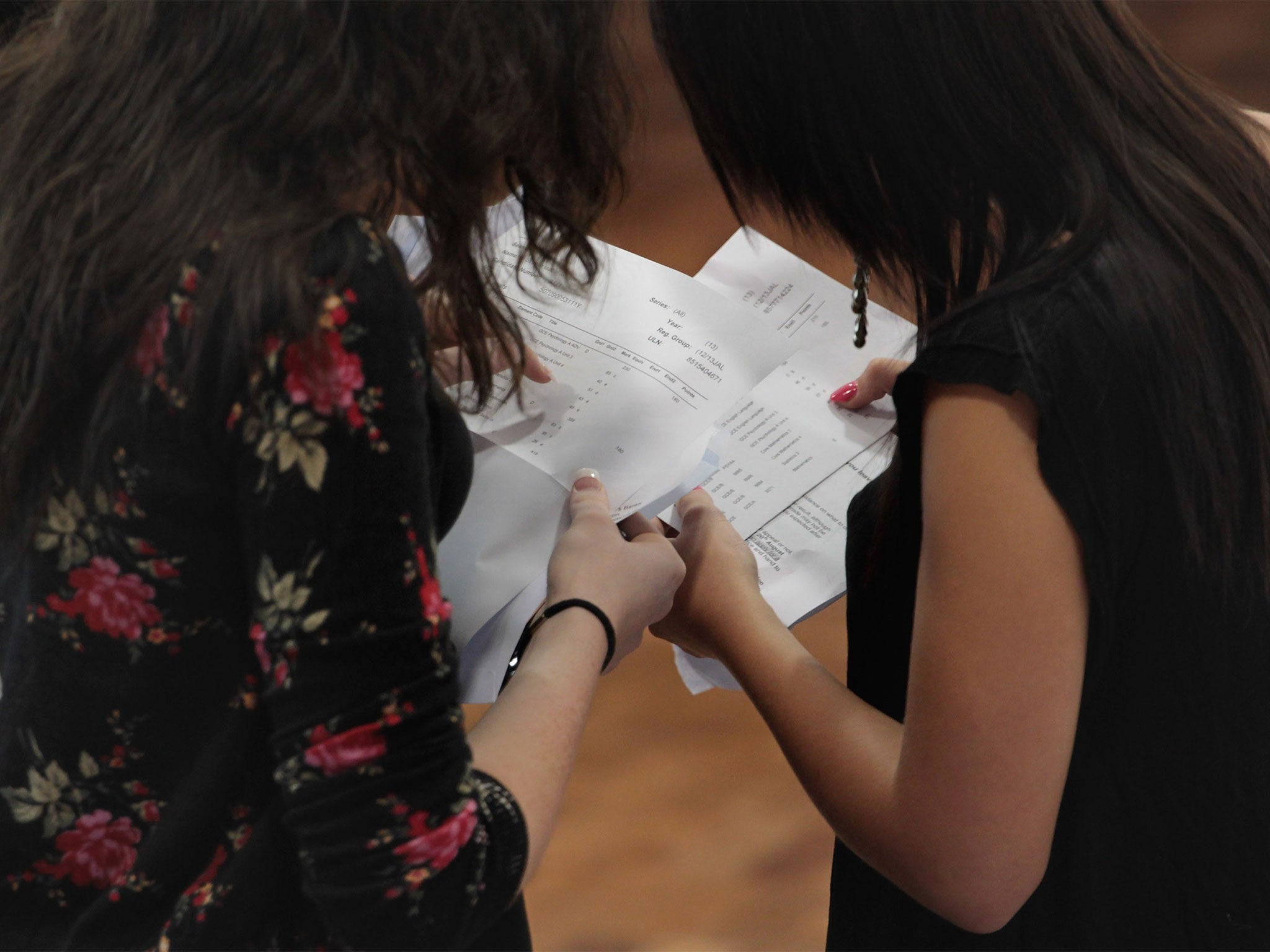A-level results day 2015: Pass rate at record high of 98.1%
Overall, there was relatively little change with exam board officials describing the results as evidence that A-levels 'remain stable'

Your support helps us to tell the story
From reproductive rights to climate change to Big Tech, The Independent is on the ground when the story is developing. Whether it's investigating the financials of Elon Musk's pro-Trump PAC or producing our latest documentary, 'The A Word', which shines a light on the American women fighting for reproductive rights, we know how important it is to parse out the facts from the messaging.
At such a critical moment in US history, we need reporters on the ground. Your donation allows us to keep sending journalists to speak to both sides of the story.
The Independent is trusted by Americans across the entire political spectrum. And unlike many other quality news outlets, we choose not to lock Americans out of our reporting and analysis with paywalls. We believe quality journalism should be available to everyone, paid for by those who can afford it.
Your support makes all the difference.The A-level pass rate has risen – bringing it back to the record level set two years ago.
Figures showed the overall pass rate had risen to 98.1 per cent - up by 0.1 per cent on 2014 which was the first year it has slumped after more than two decades of rises.
More than 250,000 teenagers in England, Wales and Northern Ireland are today receiving their A-level results - ending weeks of agony after taking their exams in June.
Overall, there was relatively little change with exam board officials describing the results as evidence that A-levels “remain stable”.
The percentage of students getting A* grades remained the same at 8.2 per cent - although the combined figure for A* and A went down by 0.1 per cent to 25.9 per cent, falling for the fourth year in a row.
The results showed a rise in the number of candidates taking the so-called “facilitating subjects” - likely to help candidates achieve a place at one of the country's most selective universities.
Geography went up by 4,188 (12.7 per cent), history by 3,717 (7.1 per cent) and English literature by 3,393 (4.9 per cent).
Maths, too, showed a slight rise – 4.4 per cent – confirming it as the most popular subject for teenagers for the second year running.
There was disappointment for the sciences, though, with chemistry falling by 1.6 per cent and biology by 1.2 per cent.
There were mixed messages from languages with Spanish becoming the second fastest growing subject – up 14.4 per cent – but German slumping by 4.3 per cent. The fastest growing subject was computing - up 29.1 per cent.
“The overriding message from this year's figures is one of stability,” said Michael Turner, director general of the Joint Council for Qualifications, the umbrella body representing exam boards.
Today the spotlight shifts to university admissions with record numbers likely to be admitted following the Government's decision to lift the cap on the number of students each university can admit.
Subscribe to Independent Premium to bookmark this article
Want to bookmark your favourite articles and stories to read or reference later? Start your Independent Premium subscription today.
Join our commenting forum
Join thought-provoking conversations, follow other Independent readers and see their replies
Comments